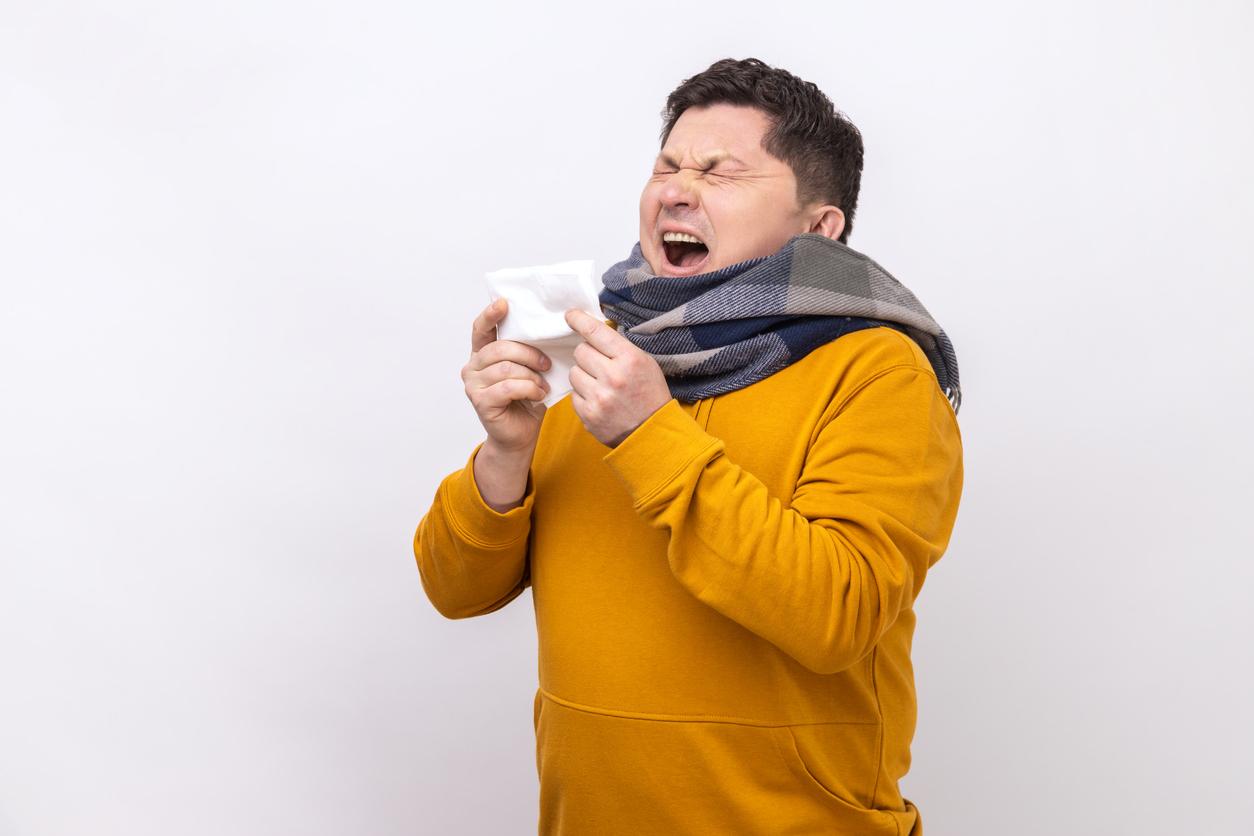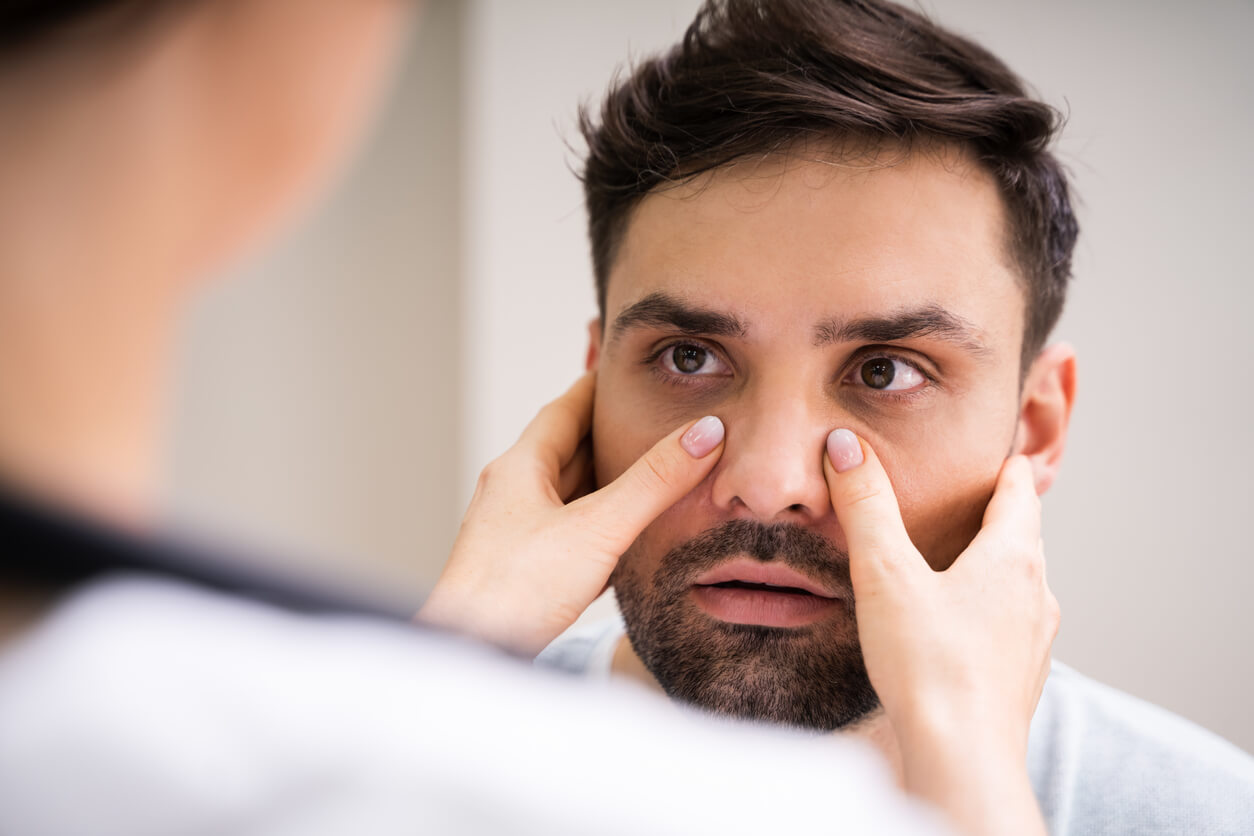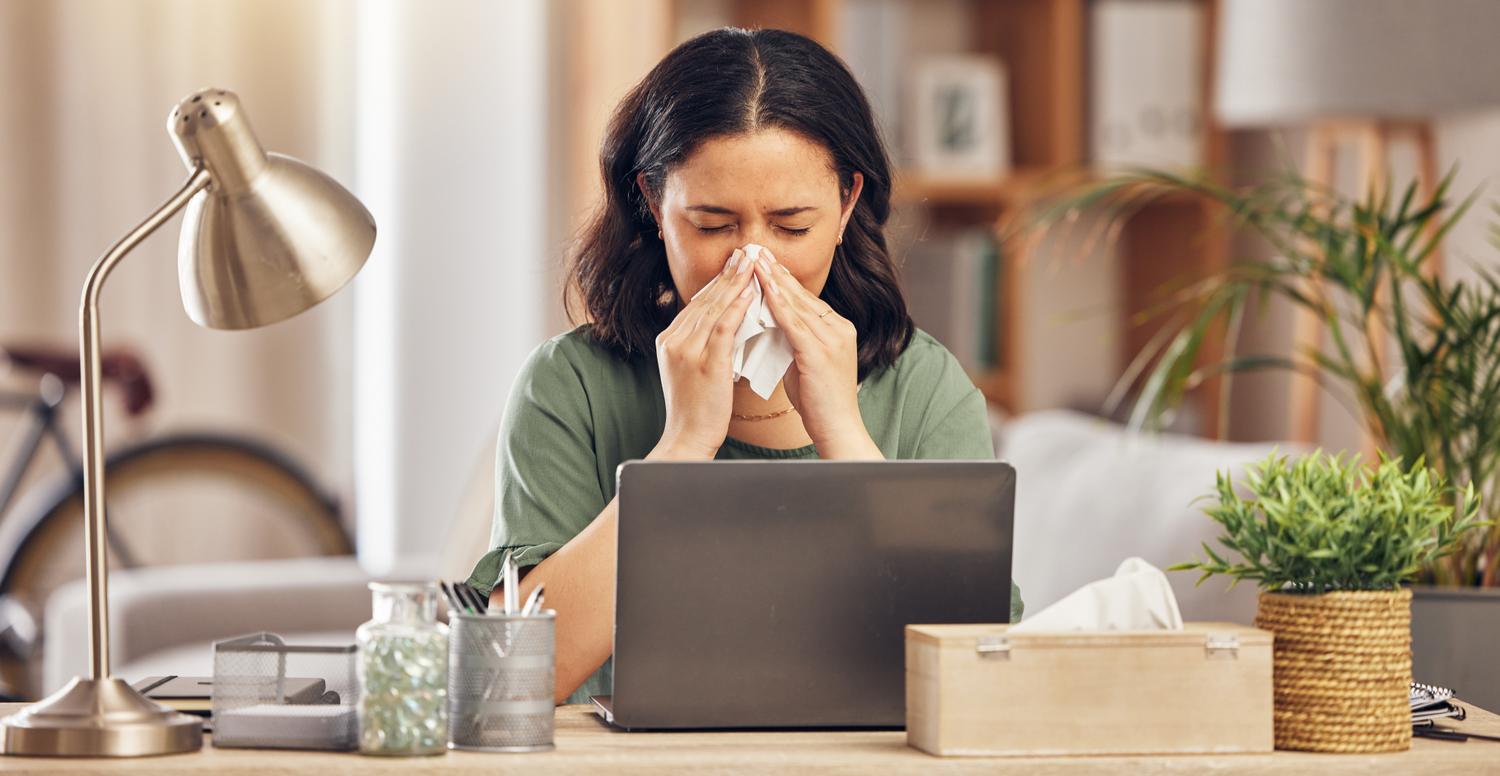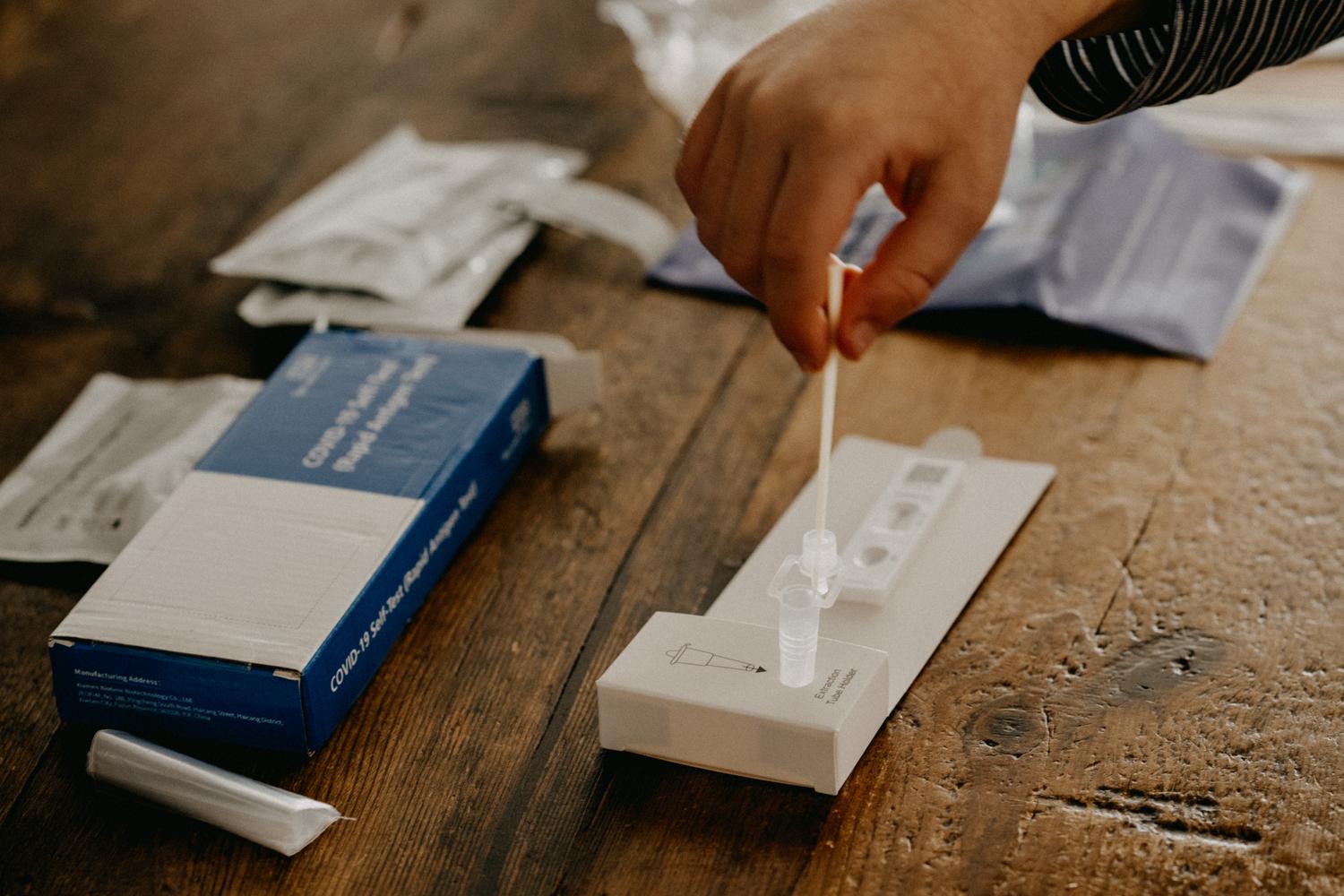Sinus Infection vs. COVID-19: Differences and Treatment
Detailing the differences between a sinus infection and COVID-19
Key takeaways
- Sinus infections and COVID-19 can cause similar symptoms like congestion and fever
- COVID testing and a symptom check is the best way to tell if you have a sinus infection or COVID-19
- Most sinus infections and mild cases of COVID-19 can be treated with OTC medication and home remedies
A sinus infection and a coronavirus-19 (COVID-19) infection can appear similarly. COVID-19, like a sinus infection, can cause common symptoms such as congestion, headaches, sinus pain, and more. However, these two illnesses do have some marked differences. Understanding these contrasts can help you take the proper precautions and receive appropriate treatment.
How to tell the difference between sinus infections and COVID
It can be hard to tell the difference between a sinus infection and COVID-19, but each condition has some unique effects. While not as accurate as a COVID test, a quick symptom check can give you a better sense of what is causing your illness.
Here are common and uncommon symptoms for both conditions.
| Symptom | Sinus infection | COVID-19 |
|---|---|---|
| Fever | Common | Common |
| Headache | Common | Common |
| Body aches | Uncommon | Common |
| Sore throat | Common | Common |
| Vomiting | Uncommon | Sometimes |
| Vomiting | Common | Common |
| Fatigue | Common | Common |
| Loss of smell | Common | Common |
| Runny nose | Common | Common |
| Diarrhea | Uncommon | Common |
Taking a COVID test is the easiest and most effective way to tell the difference between a sinus infection and COVID-19. Positive at-home test results are “accurate and reliable,” according to the CDC. A positive test result indicates that you likely have COVID-19 and should self-isolate accordingly. If you get a negative result, consider getting a free PCR test to ensure you don’t have COVID.
You can find free COVID testing sites with the CDC’s No-Cost Testing Locator.
Sinus infection causes and symptoms
Sinus infections are also known as sinusitis. Sinuses are air-filled cavities in the skull behind the nose, cheekbones, and forehead. These cavities are lined with delicate tissue called mucosa. Sinus infections are usually caused by viruses infecting this tissue. This results in inflammation, nasal passage blockage, and increased mucus production.
Acute and chronic sinusitis differ primarily in the length of illness and their underlying causes.
Acute sinusitis: Acute sinusitis is a short-term condition, usually lasting less than four weeks, and is often triggered by a viral infection, a bacterial infection, or allergens.
Chronic sinusitis: Chronic sinusitis is persistent sinus cavity inflammation lasting 12 weeks or longer. It may result from various factors, including recurring acute infections, nasal polyps, or underlying medical conditions. Symptoms can be milder but are long-lasting.
Unique symptoms of a sinus infection include:
- Facial pain or pressure, particularly around the eyes, nose, and forehead
- Post-nasal drip (nasal drainage in the back of the throat)
- Thick, discolored nasal discharge
- Bad breath
- Toothache, especially in the upper teeth
Many people experience a loss of smell or taste during a sinus infection. This is because inflammation and mucus in the sinus cavities block the odor receptors in the upper part of the nose, distorting taste and smell. Other symptoms of sinus infections include a stuffy nose, a runny nose, and a sore throat.
These infections cause similar symptoms to the common cold. However, sinus infections rarely result in effects below the neck. If you have body aches or are coughing or sneezing, you like have a common cold.
COVID-19 Causes and Symptoms
The SARS-CoV-2 virus causes COVID-19. It primarily spreads through droplets produced when an infected person coughs, sneezes, talks, or breathes. It can also spread by touching contaminated surfaces.
Symptoms of COVID-19 can range from mild to severe. If you are experiencing the symptoms of a COVID-19 infection, take a COVID-19 test to determine whether you need to self-isolate.
Unique symptoms of COVID-19 include:
- Dry cough
- Shortness of breath or difficulty breathing
- Muscle or body aches
- Fatigue
- Nausea or vomiting
- Diarrhea
The severity of these symptoms can differ among individuals. Some people only experience mild discomfort. Others may face severe symptoms such as difficulty breathing and high fevers. Severe COVID-19 may require hospitalization.
Individuals in high-risk populations are especially at risk of severe cases of COVID-19.
Sinus infection treatment options
Viral sinus infections usually go away on their own. Bacterial or chronic sinus infections may require prescription medications such as antibiotics. If you experience sinus infections caused by allergies, your provider may recommend using an antihistamine nasal spray or oral tablet to treat the allergic reaction.
Over-the-counter medication
Over-the-counter medications used to treat sinus infection symptoms include:
Saline nasal spray: Easily found over the counter in most pharmacies, products like Sinex can cleanse and rinse nasal passages, reducing symptoms associated with sinus infections. Neti Pots are also very effective at rinsing nasal passages.
Steroid nasal sprays: Nasal sprays containing the steroid fluticasone (such as Flonase) can reduce inflammation resulting from sinus infections.
Decongestants: Over-the-counter decongestant medications containing pseudoephedrine (like Sudafed) are available in various forms, including nasal sprays, oral liquids, and tablets. You should only use nasal decongestants for a few days, as prolonged use can worsen congestion.
Over-the-counter pain relievers: Pain relievers like ibuprofen and acetaminophen can ease sinus pain and fever from viral infections.
Self-care
Self-care strategies help reduce symptoms and speed up recovery.
These include:
- Hydration: Drink plenty of water and clear fluids to stay hydrated, which helps thin mucus and ease congestion.
- Steam Inhalation: Inhaling steam from a bowl of hot water or a hot shower can relieve nasal congestion and soothe irritated sinuses.
- Nasal Irrigation: Use a saline nasal spray or a neti pot to rinse nasal passages, reducing congestion and promoting drainage.
- Warm Compress: Apply a warm, damp cloth over your sinus areas to alleviate pain and facial pressure.
- Elevate Your Head: Sleeping with your head elevated can help with sinus drainage and reduce congestion.
- Humidify the Air: Use a humidifier in your room to add moisture to the air, relieving dry nasal passages and making breathing easier.
Remember that while these self-care strategies can provide relief and support recovery from viral sinus infections, they may not replace the need for medical treatment if your condition worsens or persists. Always consult a healthcare provider if you have concerns about your sinus infection.
COVID-19 Treatment Options
COVID-19 will usually go away on its own after a week or so. The CDC recommends that individuals who have tested positive for COVID-19 self-isolate. New guidelines recommend that you go back to normal activities 24 hours after your symptoms start getting better (like when your fever goes down without using a fever reducer). Practice masking and social distancing practices around others for 5 days after returning to normal activities.
Self-care
While self-isolating, use these self-care methods to reduce your symptoms and speed up recovery:
- Isolation: Stay in isolation to prevent the spread of the virus to others.
- Rest: Get plenty of rest to help your body recover.
- Fever Reducers: Over-the-counter medications like acetaminophen or ibuprofen can help reduce fever and alleviate discomfort. Follow your healthcare provider's advice for medication use.
- Cough Suppressants: Over-the-counter cough medications may help relieve cough symptoms.
Medication
A healthcare provider may prescribe medication for individuals who have tested positive for COVID-19 and are at high risk for hospitalization or severe complications caused by the disease.
Antiviral medications used to treat COVID-19 include:
- Nirmatrelvir and ritonavir (Paxlovid): Available as two oral tablets
- Molnupiravir (Lagevrio): Available as an oral tablet
- Remdisivir (Veklury): Available in a medical care setting through an IV
Developed in response to the pandemic, COVID-19 vaccines are now available. Adults and children six months and older should receive the COVID-19 vaccine. For those already immunized against COVID-19, the Centers for Disease Control and Prevention recommends getting an updated booster shot four months after your last updated dose.
How Sesame can help
If you’re concerned about your symptoms or are looking for more information, Sesame offers same-day, affordable online COVID-19 visits on Sesame. Providers on Sesame can address your concerns, offer medical advice, and prescribe medication when appropriate.









